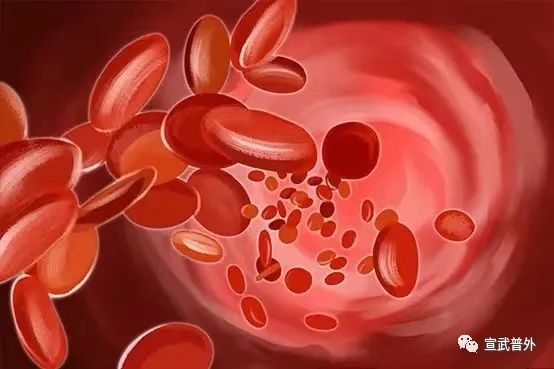

 Commonly, people believe that anemia means one should supplement blood, but they are unaware that anemia is merely a symptom caused by various underlying reasons or diseases. Therefore, when experiencing anemia, one should not blindly supplement blood; instead, it is essential to identify the underlying cause and treat the specific condition causing the anemia to achieve better results.
Commonly, people believe that anemia means one should supplement blood, but they are unaware that anemia is merely a symptom caused by various underlying reasons or diseases. Therefore, when experiencing anemia, one should not blindly supplement blood; instead, it is essential to identify the underlying cause and treat the specific condition causing the anemia to achieve better results.


First, we need to understand what anemia is.
Anemia refers to a common clinical symptom characterized by a lower than normal concentration of hemoglobin, red blood cell count, and/or hematocrit in the peripheral blood per unit volume. In adult males, anemia is diagnosed when hemoglobin is <120g/L, and in adult females, when it is <110g/L. Depending on the degree of reduction, anemia can be classified as mild, moderate, severe, or very severe. Clinically, hemoglobin is primarily used, which is commonly referred to as blood pigment. Hemoglobin is a protein responsible for transporting oxygen in higher organisms. When anemia occurs, the amount of hemoglobin decreases, leading to reduced oxygen-carrying capacity of the blood, resulting in hypoxic changes in organs and tissues throughout the body, which can manifest as fatigue, dizziness, tiredness, pale skin and mucous membranes, memory decline, and loss of appetite. Anemia can appear subtly as a manifestation of chronic diseases or can suddenly emerge after significant blood loss.

 Anemia is just a common symptom; what causes anemia? Generally, there are three main situations:
Anemia is just a common symptom; what causes anemia? Generally, there are three main situations:
1. Decreased erythropoiesis in the bone marrow, such as in aplastic anemia, malignant tumors, and iron deficiency anemia;
2. Excessive destruction of red blood cells in the body, commonly seen in autoimmune hemolytic anemia;
3. Blood loss due to trauma, etc.
With the improvement of living standards, many people enjoy taking blood-supplementing nutritional products. However, they are unaware that some supplements containing therapeutic ingredients should not be taken indiscriminately. When experiencing anemia, it is crucial to identify the cause of the anemia, just as appendicitis or ectopic pregnancy can cause abdominal pain. If one blindly takes pain relief without identifying the cause, it is impossible to treat the abdominal pain effectively.

 Since anemia is a symptom accompanying various diseases, if symptoms of anemia appear, one should promptly consult a specialist for further examination. Blindly supplementing blood may alleviate the symptoms of anemia but could mask other more significant diseases, delaying the optimal treatment time. After clarifying the nature of the anemia, it is also essential to identify the cause of the anemia, as often the diagnosis of the underlying cause is more important than the treatment itself.
Since anemia is a symptom accompanying various diseases, if symptoms of anemia appear, one should promptly consult a specialist for further examination. Blindly supplementing blood may alleviate the symptoms of anemia but could mask other more significant diseases, delaying the optimal treatment time. After clarifying the nature of the anemia, it is also essential to identify the cause of the anemia, as often the diagnosis of the underlying cause is more important than the treatment itself.




